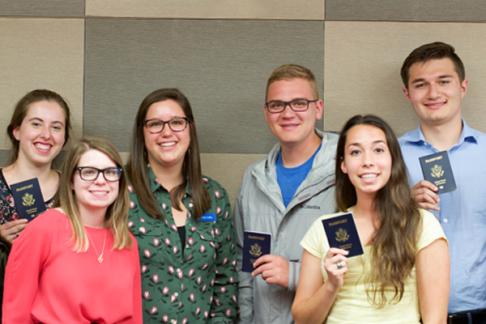Do you need a visa for Italy?
While this may be the first time you apply for a student visa, this isn't our first rodeo. Every year, our team of visa specialists support each of our students studying abroad in Italy to have the proper documents to enter the country. Let's get started!
A student visa for Italy is a legal document adhered to one of the inside pages of your passport that you must have before entering Italy. The visa serves as approval from the Italian government for you to legally remain in Italy for the duration of your study abroad program. The Italy student visa is called National Visa D and is a long-term visa, meaning you plan to be in Italy for more than 90 days.
Depending on your IES Abroad program and citizenship, you may need a student visa to study abroad in Italy. We’ve outlined citizenship options below to help you learn more about your visa requirements.


